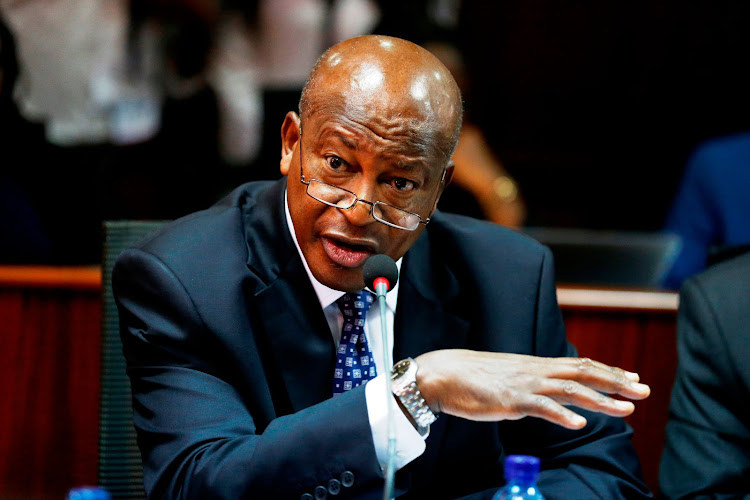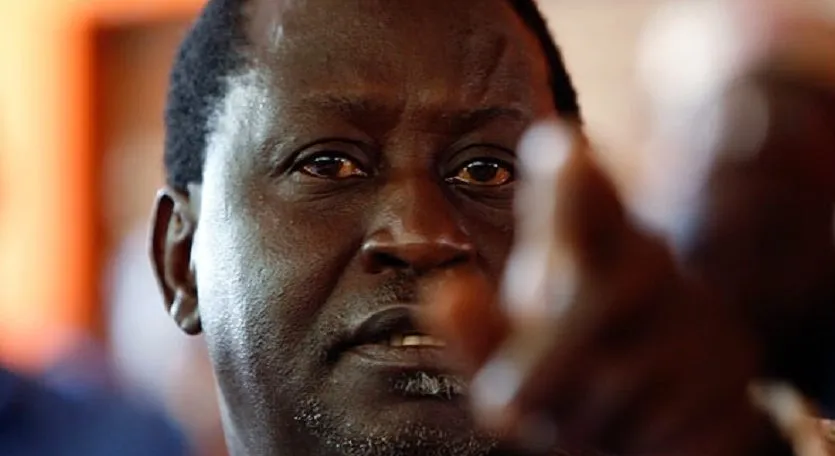Retired Judge Paul Kihara Kariuki became Kenya’s seventh Attorney General after taking over from Prof. Githu Muigai who was forced into early retirement in 2018 but Kihara’s four and a half years stint at the country’s State Law Office had many lows.
It is during Kihara’s tenure that the relationship between the Judiciary and the Executive deteriorated when it was widely expected to improve after the retired Court of Appeal judge was made the government’s chief legal advisor.
It all began when former President Uhuru Kenyatta refused to swear in 41 judges as recommended by the Judicial Service Commission (JSC) forcing the then Chief Justice (CJ) David Maraga to call several press conferences in protest the decision by the President refusing to swear in the judges.
Maraga accused the executive of belittling the courts as he bitterly complained over what he termed as disobedience of court orders and the reduction of the Judiciary budget by Kenyatta.
But in defense of President Kenyatta, AG Kariuki fired back at Maraga accusing him of breaching established traditions of the government and direct lines of communication between the offices of CJ, AG and the President.
“The statements by CJ Maraga demonstrate that the honourable Chief Justice has failed to cultivate the spirit of constructive consultation and has instead resorted to grandstanding and populist brinkmanship, with the Executive as his bogeyman,” Kihara said.

The former AG was angered by Maraga’s move as he accused him of setting tone for judges and magistrate over matters that are either currently or would in the near future, end up before courts, for determination.
“As a judge of the Supreme Court, the CJ is also revealing his disposition and prejudices over certain constitutional and legal issues that may end up before the Supreme Court for determination,” Kihara said.
Though the judges were eventually sworn in by President Kenyatta, he left out six of them who were later sworn into office when President William Ruto became president on September 13, fulfilling a promise he gave during campaigns.
But Kihara’s tenure was also marked by countless court losses as he came under fierce criticism of misadvising the government and making whatever decision that pleased the president.
The former AG lost many legal battles bringing into sharp focus his role as the Attorney General and whether he was giving the president sound advice.
His tenure saw the government lose many landmark cases including the attempt to change the Constitution through the Building Bridges Initiative (BBI).
He was part of the team that defended the push to amend the Constitution through the BBI but the bid was first shot down by a bench of five judges of the High Court and the decision was later upheld by the Court of Appeal.
And when several petitions challenging the election of William Ruto as president were filed by government sympathizers after the August 9 General Election, Mr Kariuki said he would not oppose the cases.
This was unlike his predecessors in 2013 and 2017, opposed all petitions that sought to nullify election results in each case. Kihara retired on Friday after handing over to Justin Muturi but only a shell is left of the arrogant man who was never assertive in advising the government to comply with court orders.
“I consider our nation’s justice and legal services sector institutional framework robust,” Kariuki said.
He also claims that it is during his tenure that the State Law office managed to conclude 4,541 cases filed against the national government, gave 3,119 legal opinions to ministries, department and agencies and approved 252 procurement contracts.
Kihara goes home as a man who contributed to a series of court losses by the government including the rollout of Huduma Namba cards which the court said was illegal.
Justice Jairus Ngaah in October 2012 ruled that the government erred by not conducting a data protection impact assessment before rolling out the cards.
“An order is hereby issued to bring into this honourable court to quash the government decision of November 18, 2020, to roll out Huduma cards for being ultra vires of the Data Protection Act, 2019,” Ngaah ruled.



















